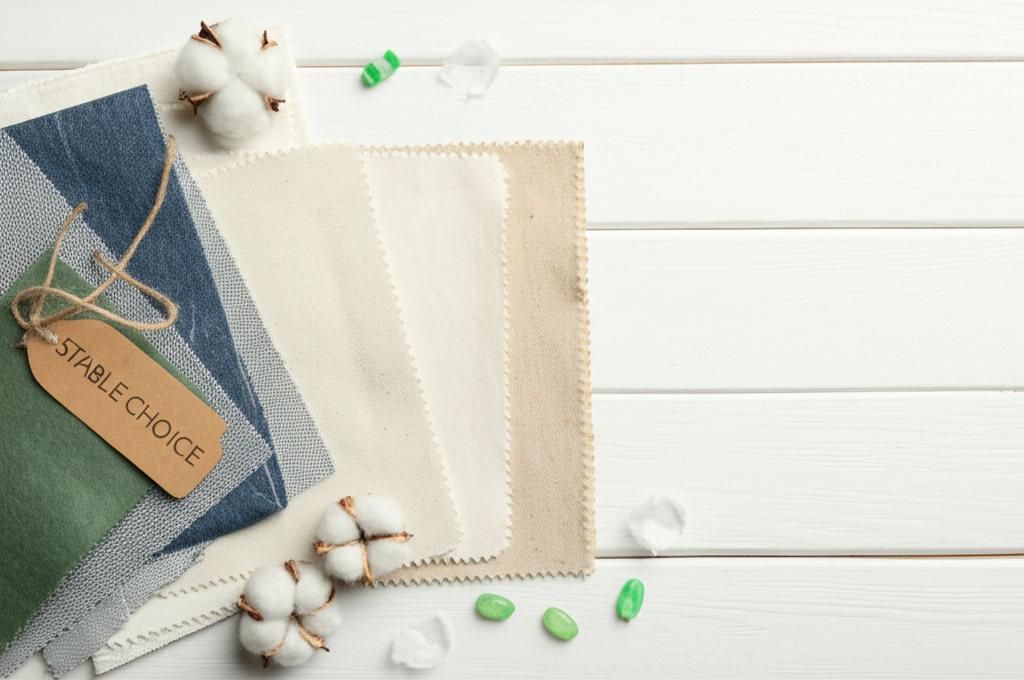The Rise of Sustainable Manufacturing
The bag manufacturing industry is experiencing a significant shift toward sustainability. As environmental concerns grow, both consumers and businesses are increasingly prioritizing eco-friendly products and processes. This transformation isn't just about meeting regulatory requirements—it's about responding to a fundamental change in consumer values and expectations.
At Rishabh Bags, we've witnessed firsthand how sustainability has evolved from a niche concern to a mainstream priority. Our customers are increasingly asking about the environmental impact of their custom bag orders, and many are willing to invest more in sustainable options.
Top Eco-Friendly Materials
Several innovative materials are leading the charge in sustainable bag manufacturing:
- Organic Cotton: Grown without harmful pesticides or synthetic fertilizers, organic cotton produces bags with a significantly lower environmental footprint than conventional cotton.
- Recycled PET: Made from post-consumer plastic bottles, recycled PET fabric gives new life to materials that would otherwise end up in landfills.
- Hemp: This durable, fast-growing plant requires minimal water and no pesticides, making it one of the most environmentally friendly natural fibers.
- Jute: Biodegradable and requiring minimal agricultural inputs, jute produces strong, versatile bags with excellent durability.
- Cork: Harvested from cork oak trees without harming them, cork fabric is waterproof, lightweight, and biodegradable.
Each of these materials offers unique benefits and can be incorporated into various bag designs. Our custom bag manufacturing services include options for all these sustainable materials.
Benefits for Businesses
Adopting sustainable materials in bag manufacturing offers numerous advantages:
- Enhanced Brand Reputation: Demonstrating environmental responsibility strengthens your brand image and builds customer loyalty.
- Market Differentiation: Sustainable products help your business stand out in a crowded marketplace.
- Regulatory Compliance: Stay ahead of increasingly stringent environmental regulations.
- Cost Savings: While initial costs may be higher, sustainable practices often reduce expenses over time through efficiency improvements and waste reduction.
- Access to Eco-Conscious Markets: Tap into the growing segment of environmentally conscious consumers willing to pay premium prices for sustainable products.
Implementation Challenges
Despite the clear benefits, transitioning to sustainable bag manufacturing presents several challenges:
- Higher Initial Costs: Eco-friendly materials often come with premium price tags, at least initially.
- Supply Chain Complexity: Sourcing sustainable materials may require developing new supplier relationships and verification processes.
- Technical Adaptations: Manufacturing processes may need modification to accommodate different material properties.
- Balancing Performance: Ensuring sustainable bags meet the same durability and functionality standards as conventional options.
At Rishabh Bags, we help our clients navigate these challenges through our expertise in sustainable manufacturing processes. Our team can provide detailed quotes that balance sustainability goals with practical business considerations.
Future of Sustainable Bag Production
The future of bag manufacturing is undoubtedly green. We anticipate several developments in the coming years:
- Circular Economy Models: More manufacturers will implement take-back programs and closed-loop systems.
- Innovative Biomaterials: New plant-based and lab-grown materials will expand design possibilities while reducing environmental impact.
- Advanced Recycling Technologies: Improvements in recycling will make it possible to process more types of materials more efficiently.
- Transparent Supply Chains: Blockchain and other technologies will enable complete traceability from raw material to finished product.
Businesses that embrace these trends now will be well-positioned for success in an increasingly eco-conscious marketplace.
Ready to Explore Sustainable Bag Options?
If you're interested in incorporating sustainable materials into your custom bag designs, contact our team for expert guidance. We can help you select the right materials and manufacturing processes to meet your sustainability goals without compromising on quality or aesthetics.

